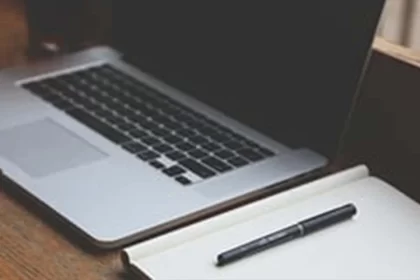In today’s fast-paced financial world, trading offers an incredible opportunity for entrepreneurs and business leaders to diversify their income streams and expand their portfolios. With the advent of digital platforms, the forex market has become more accessible than ever. However, entering the world of forex trading requires knowledge, strategy, and patience. For executives and professionals looking to leverage their skills in new ways, learning how to trade signals can be a transformative step towards mastering the forex market and securing financial growth.
Understanding Forex Trading
Forex trading, also known as currency trading, involves buying and selling currencies on the foreign exchange market to profit from fluctuating exchange rates. Unlike stock markets, forex operates 24/7, allowing traders to engage in the market at any time, making it an attractive opportunity for professionals with varying schedules. The forex market is one of the most liquid and expansive markets globally, with daily trading volumes surpassing $6 trillion. Its decentralized nature means that there are no central exchanges, and the market is open to all types of participants, from individual traders to multinational corporations.
For those unfamiliar with the intricacies of the forex market, the learning curve can be steep. But understanding the basics, such as currency pairs, market indicators, and trading strategies, is essential for success. As with any new venture, setting a strong foundation is key to mitigating risks and achieving profitable trades.
Key Elements for Success in Forex Trading
1. Understanding Currency Pairs
Currencies are traded in pairs, such as EUR/USD (Euro/US Dollar) or GBP/JPY (British Pound/Japanese Yen). These pairs represent the value of one currency in relation to another. As a trader, you are speculating on whether the first currency in the pair will strengthen or weaken against the second one. Currency pairs are divided into three categories:
- Major pairs: These include the most traded currencies, such as USD, EUR, GBP, and JPY.
- Minor pairs: These pairs involve currencies from smaller economies, like NZD/CHF or EUR/GBP.
- Exotic pairs: These involve a major currency paired with a currency from an emerging market, such as USD/TRY (Turkish Lira).
To learn more about different fiat currencies, their symbols, codes and strength, you can check out the all countries currency list.
2. Understanding Market Trends and Indicators
A successful forex trader doesn’t rely on luck but instead uses tools and analysis to make informed decisions. Technical analysis, which involves studying charts, trends, and indicators, is vital for predicting currency price movements. Fundamental analysis, on the other hand, focuses on economic factors such as interest rates, inflation, and political stability, all of which can influence a currency’s value.
To succeed in forex trading, you must learn how to read market trends and make predictions based on data. Indicators such as moving averages, Bollinger Bands, and Relative Strength Index (RSI) are commonly used to assess market conditions and spot potential entry and exit points.
3. The Power of Signals in Forex Trading
For beginners, one of the most valuable resources available is trading signals. These are specific suggestions to buy or sell a currency pair, often accompanied by a suggested entry and exit point. Signals can be generated by algorithms, professional traders, or automated trading systems, and they serve as a guide to help you make informed decisions in real-time.
For those new to forex, learning how to trade signals can significantly reduce the complexity of the process. Signals provide a roadmap for executing trades without requiring in-depth knowledge of technical and fundamental analysis. While it’s essential to verify the reliability of signal providers, this resource can give you a competitive edge as you develop your skills and understanding of the forex market.
4. Risk Management and Setting Realistic Goals
Risk management is a critical element in forex trading. The volatile nature of the market means that even experienced traders can face significant losses. To protect your capital and reduce the chances of substantial losses, it’s essential to use tools such as stop-loss orders and proper position sizing. Additionally, always trade with a clear plan and avoid emotional trading.
Setting realistic goals is another crucial factor. Forex trading is not a get-rich-quick endeavor, and those who expect instant results are likely to face disappointment. Successful traders understand the importance of patience and discipline, making small, calculated trades that accumulate into larger profits over time.
How to Get Started in Forex Trading
For entrepreneurs and executives considering entering the forex market, the first step is choosing a reliable and user-friendly trading platform. Many platforms offer demo accounts, which allow you to practice with virtual money before risking your capital in the live market. This is an excellent opportunity to familiarize yourself with the platform’s features and experiment with different strategies without financial risk.
Once you’ve selected a platform, start by educating yourself on the basic terminology, strategies, and risk management techniques. There are various online resources, including free webinars, tutorials, and courses, that can guide you through the learning process. Additionally, joining forex trading communities can provide valuable insights and mentorship from experienced traders.
5. Choosing the Right Broker
Choosing a reputable forex broker is essential for ensuring that your trading experience is smooth and secure. A good broker should offer competitive spreads, a wide range of currency pairs, and a secure trading environment. It’s also crucial to check the broker’s regulatory status to ensure that they adhere to industry standards and provide the necessary protections for your capital.
By understanding the fundamentals, using reliable signals, and practicing sound risk management, you’ll be well on your way to mastering forex trading and leveraging it as a powerful tool for financial growth.
Forex trading is a rewarding yet challenging pursuit. With dedication, the right resources, and strategic planning, the opportunities for success are endless. Whether you’re a business leader diversifying your investments or someone new to trading, mastering forex can open doors to substantial financial growth.










